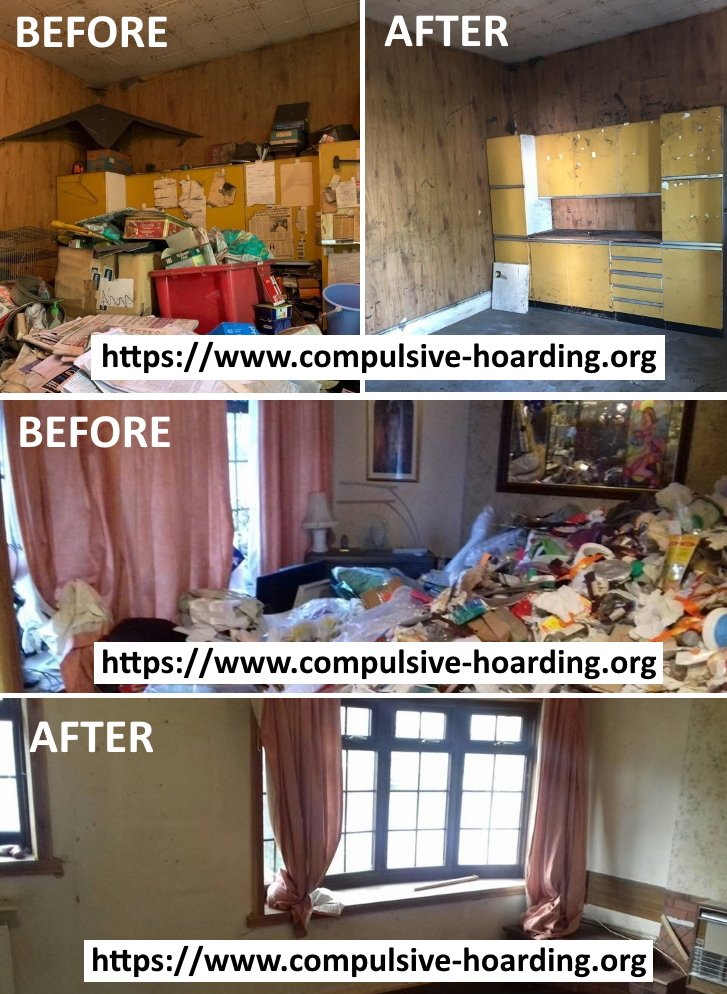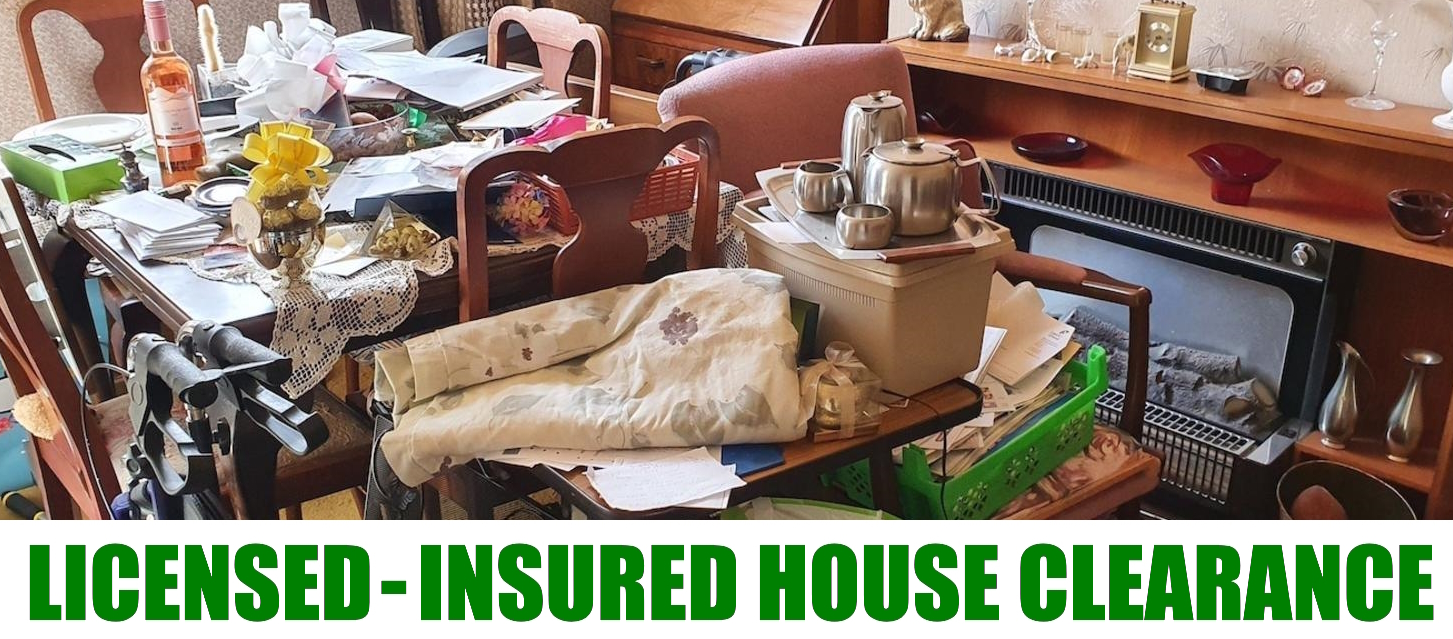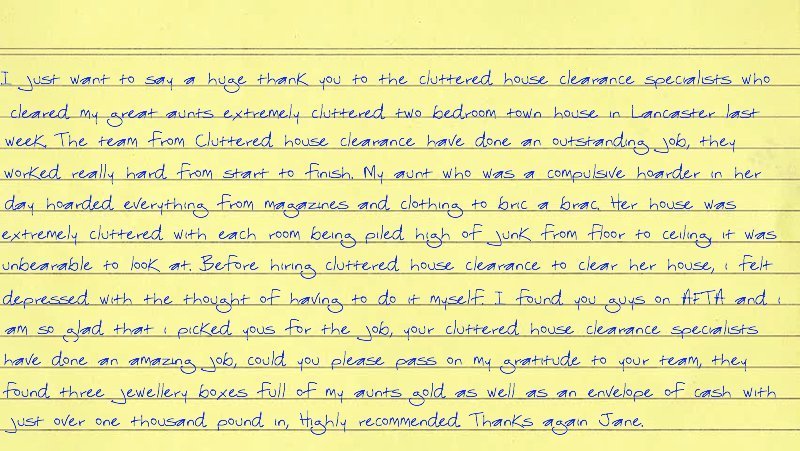
Hoarding has likely impacted anybody reading this article. This could be because you struggle with the compulsion yourself, or because you have seen it claim a loved one and make them almost unrecognisable as the person you once knew.
The need to hoard is a psychological condition, and one that has a serious impact on quality of life. While it has been spoken of in hushed tones for a while, serious and intense study into the issue is now being conducted. Help is available for hoarders, with new information coming to light every day.
There is no doubt that living in a cluttered home makes people unhappy. Hoarders often declare that they no longer wish to live that way, once they acknowledge that they have a problem. Unfortunately, this acknowledgement is not a fast process. In addition, admitting to having an issue is one thing. Being prepared to put the work in to resolve it is quite another. Continued Below:
Clearing a hoarder’s house? The Cluttered House Clearance Company offer professional compulsive hoarding clearing services in the UK. Specialists in cluttered hoarder house clearance.
Call us now to discuss your situation, let us tell you how our service works.
The Cluttered House Clearance company are fully licensed with the UK environment agency (Environment Agency Waste Carrier License NO #: CBDU284870), we are also members of AFTA.ORG.UK the Anti Fly Tipping Association
I just want to say a huge thank you to the cluttered house clearance specialists who cleared my great aunts extremely cluttered two bedroom town house in Lancaster last week. The team from Cluttered House Clearance have done an outstanding job, they worked really hard from start to finish. My aunt who was a compulsive hoarder in her day hoarded everything from magazines, clothing to bric a brac.
Hoarder House Clearance Help Continued
Although we are not trained psychologists, as cluttered house clearance specialists we do have a clear and unique insight into compulsive hoarding. As a result, we consider it our responsibility to remain updated on the varying treatments and research that become available.
The first thing that should be noted is that hoarding has only recently been acknowledged as a unique and independent mental health condition. Previously, hoarding was always treated as a symptom of Obsessive Compulsive Disorder (OCD). This meant that specialist treatment was not available, and many hoarders received no benefit from OCD medication or therapy. With this in mind, steps are being taken to amend this misconception and treat compulsive hoarding as the complex problem that it is.
Recent psychological studies have discovered that hoarding typically falls into one of two categories. Some subjects show symptoms alongside OCD, giving credence to the previous theory. However, it is also now believed that many compulsive hoarders show no symptoms of conventional OCD. Their behaviour may share co-morbidity with another mental health condition however, such as depression or social anxiety.
A hoarder that also lives with OCD will not just be concerned with the acquisition of clutter. They’ll also insist that everything is clinically and neatly arranged, just how they like it. Newspapers, for example, will be neatly aligned and sorted by date or publication. The hoarder with OCD may also acquire slightly more specialist items. What looks like anarchy to the untrained eye will make perfect sense to a hoarder with OCD.
As discussed, however, these links are not always accurate. This is why the 5th edition of the American Psychology Association’s Diagnostic and Statistical Manual of Mental Disorders has elected to separate the issues. Compulsive hoarding now has a unique entry, tentatively titled Hoarding Disorder. This is the first step into a world of wider understanding of this behaviour.
Hoarding – A Medical Definition
Randy O Frost and Tamara L Hartl made an attempt at a definitive definition of hoarding back in 1996. They describe hoarding as:
“The acquisition of, and failure to discard, possessions that appear to be of useless or of limited value. Living spaces so cluttered that using the room as intended is impossible. Significant distress or impairment to function.”
Compulsive Hoarding and Anger
Every hoarder has their own reasons for the behaviour, and the psychology behind hoarding often involves trauma. Anger and rage can also play a significant role, though.
The urge to destroy in a moment of frustration is prevalent in all humans. We’ve all taken out our irritation on an inanimate object at one time or other. A hoarder will take this to the extreme, though.
For example, you may have thrown a piece of paper across the room. After a few seconds, you’ll calm down, pick this piece of paper up, and throw it away. A hoarder may lack that control. They won’t stop at one piece of paper, they’ll toss a whole ream.
If a hoarder does this, they’re unlikely to stop at mere paper. They’ll willingly and deliberately destroy a variety of items. Eventually, they’ll reach a point where their house is a scene of chaos. At this point, they’ll question the point of stopping. What’s one more item on the pile of a scene of devastation?
Of course, not all hoarders are comfortable with this. They’re compelled to act this way, but they do not enjoy. This discomfort manifests as rage … and a hoarder is trapped in an unwelcome vicious cycle.
Is Hoarding Inherited?
Recently, as hoarding has been acknowledged as a medical condition, research has begun into whether hoarding could be a genetic illness. It has been discovered that hoarding runs in families.
However, the reason for this has yet to be confirmed. It could indeed be a genetic inheritance. However, a popular train of thought is that the children of hoarders simply lack a model for anything else. Somebody raised in a severely cluttered home may take comfort from replicating this in their own property.
If course, as discussed, anger and trauma may also play a role. Hoarding is a very complex condition, and more research is required to truly understand the familial links.
Variations of Hoarding
Hoarding is a generic term, used interchangeable to describe a number of different conditions. Naturally, the most common of these is clinical compulsive hoarding, which sees an individual acquire a house filled with clutter. As discussed, however, some hoarders also suffer from a form of perfectionism, which means all their belongings must be stacked and filed just so. This is linked to OCD.
Some hoarders are also animal hoarders. These individuals acquire a substantial number of pets of varying species. They invite wild animals into their home. This form of hoarding is rare, though cases are often wildly reported.
Another rare disorder linked to hoarding is Diogenes syndrome. Sometimes referred to as Senior Squalor Syndrome, this condition sees elderly individuals with personality disorders subject themselves to severe cases of self-neglect.
For non hoarded house clearance we recommend Northern House Clearance
FREE Hoarded House Clearance Asset Recovery Service…
Our pre house clearance asset recovery service is 100% FREE. If we find NOTHING in the property then we ourselves expect nothing, no charges, no fees. We only get paid if we locate items of value and of course if you ask us to undertake the actual clearance after the search has been completed.
Please take a minute or two to read our page about our FREE Hoarded Houses Clearance Asset Recovery Service.








